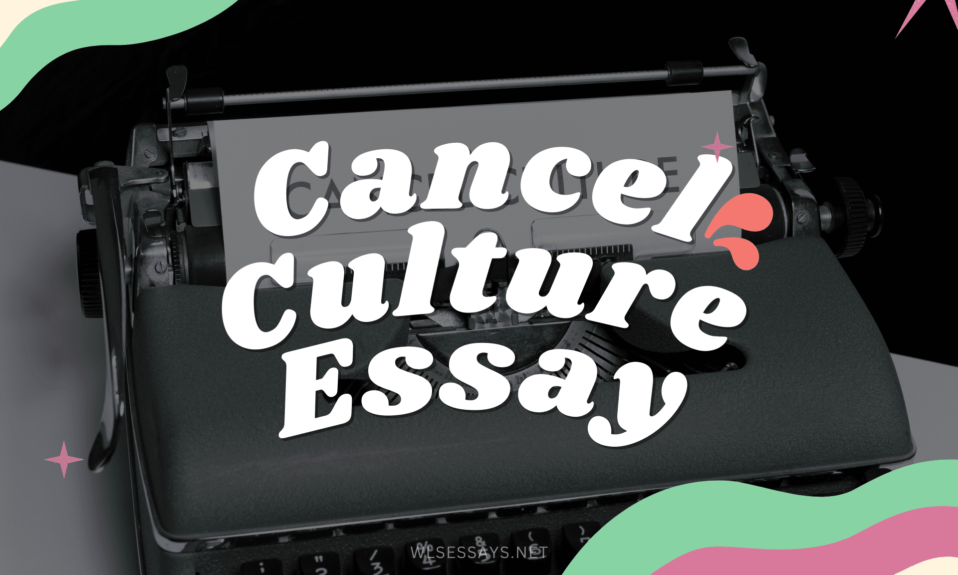The classic works “Crito” by Plato and “Letter from Birmingham Jail” by Dr. Martin Luther King Jr. address the moral and philosophical conundrums that the conflict between a person’s conscience and societal norms bring. In “Crito,” Socrates must choose between following the state’s laws and accepting his fate or escaping from prison to avoid his unfair punishment. He is about to face execution. Meanwhile, in “Letter from Birmingham Jail,” Dr. King defends his acts and calls for prompt action to address systematic injustice in response to accusations from fellow clergymen regarding his peaceful rallies against racial segregation. Characters in both masterpieces are faced with choosing between two allegiances: allegiance to authority and society norms or allegiance to one’s moral convictions. However, each work promotes a different solution, even with this same core conflict. King encourages civil disobedience and direct action to challenge unfair laws and bring about social change, unlike Socrates, who ultimately decides to conform to the state’s laws and accept his punishment. While characters in both works struggle with the complexities of individual conscience and societal obligations, the stories offer contrasting perspectives on navigating these conflicts.
Throughout “Crito,” the central conflict is on Socrates’ difficult choice between abiding by the state’s laws and his moral convictions. Having been unfairly sentenced to death, Socrates is faced with a dilemma: upholding the authority of Athens’ judicial system or remaining true to his philosophical convictions (Plato n.p). He considers the moral ramifications of obeying the law, accepting his fate, breaking the law, and breaking out of prison to save his life. Socrates’ conversation with Crito exemplifies this dilemma as he considers the consequences of his choices and balances the value of justice against self-preservation. The philosophical discussion between Socrates and Crito about the nature of justice and the place of the individual in society is fueled by this dispute, which also advances the plot. The main topic of discussion turns to Socrates’ inner conflict, which leads Crito to make several arguments supporting fleeing. At the same time, Socrates responds with well-reasoned arguments in favour of abiding by the law. The struggle exposes the dichotomy between societal responsibility and individual autonomy and the intensity of Socrates’ dedication to his ideals. Plato examines the difficulties of making moral decisions and the resulting tensions when a person’s conscience collides with outside influences in their discourse.
In “Letter from Birmingham Jail,” Dr. Martin Luther King Jr. addresses the fundamental dilemma of upholding unfair laws while promoting civil disobedience to achieve justice. King struggles with the moral choice of upholding laws that enforce racial segregation or opposing them through peaceful protest (King n.p). He bemoans the white moderate clergy’s indifference to injustice and argues that patience and slow change are the only things that will make injustice worse. King’s fight exemplifies the more significant conflict between the need to uphold the authority and the necessity of opposing unfair laws in the name of equality and human dignity. The structure and content of King’s letter are shaped by this conflict, which also motivates his moral arguments. King uses rhetorical devices, such as pathos, ethos, and logos to convince his readers of the virtues of the Civil Rights Movement throughout the entire letter. He argues that it is morally required to face injustice head-on and calls for swift action to end segregation and preserve the values of freedom and equality. King’s support of civil disobedience reflects his firm belief that moral bravery and active opposition are necessary to pursue true justice rather than passively accepting unjust laws.
Socrates demonstrates a solid dedication to his moral values and philosophical beliefs by accepting his fate and following the state’s laws despite their injustice. In “Crito,” Socrates ultimately chooses to submit to the state’s power and face his impending execution instead of exiting prison. Socrates’ discussion with Crito, in which he explains his reasons for staying put and emphasizes the need to keep the social compact and abide by local regulations, serves as evidence for this choice. According to Socrates, “…in no circumstances must one do wrong.
” (Plato, n.p). Socrates’ unflinching commitment to moral integrity and philosophical truth is demonstrated by his desire to uphold the law, even when it is unfair and leads to his destruction. Socrates’ decision significantly affects his moral character and philosophical views. For instance, Socrates shows that even in the face of hardship, he is committed to leading a moral life in line with reason and justice by deciding to accept his penalty. His choice reflects his conviction that moral consistency and adherence to justice values are essential, regardless of the personal costs. Furthermore, Socrates’ obedience to the law demonstrates his respect for political power and his conviction in the sanctity of the social compact, even in cases where it goes against personal conscience. For these reasons, Socrates’ resolve in “Crito” is a monument to his unwavering devotion to truth and morality and shows his loyalty to moral and philosophical values.
Martin Luther King Jr.’s passionate appeal to action and steadfast dedication to nonviolent resistance in the face of injustice characterize the conflict resolution in “Letter from Birmingham Jail”. King writes that “In any nonviolent campaign there are four basic steps: collection of the facts to determine whether injustices exist; negotiation; self purification; and direct action.” (n.p). Therefore, he is determined to continue the civil rights movement through nonviolent protest despite resistance and censure from white moderates and authorities. King highlights the moral obligation to oppose the current state of racial injustice and segregation throughout the whole letter. He highlights the necessity for swift and decisive action to combat systematic injustice with his statement that “justice too long delayed is justice denied,” which is an example of his call to action (King n.p). King’s resolution is a powerful tool for upending the status quo and igniting social change. He rallies people to support the Civil Rights Movement and fight for justice and equality with his powerful and eloquent speeches. His dedication to peaceful resistance is an example of moral bravery and principled action, motivating many people to oppose racial tyranny. Additionally, King’s letter draws attention to the predicament of African Americans on a national and international level, boosting support for and awareness of the Civil Rights Movement. Thus, King’s decision in “Letter from Birmingham Jail” ultimately sparked profound social and political change, creating the foundation for the eventual repeal of segregation laws and the expansion of civil rights in the United States.
Both Plato’s “Crito” and Martin Luther King Jr.’s “Letter from Birmingham Jail” provide the fundamental conflict between a person’s conscience and society’s expectations, providing significant insights into the human condition. In Plato’s dialogue, Socrates debates whether to uphold his moral convictions or accept the state’s unfair laws. Plato emphasizes the need to maintain social order and deference to political authority, even when it goes against personal convictions, through Socrates’ choice to accept his fate and follow the law. Conversely, King’s letter illustrates the fight against racial injustice by supporting peaceful resistance and civil disobedience to oppose unfair laws and social standards. King highlights the need to address structural injustice and pursue parity by refusing to take a passive stance towards discrimination and segregation. Therefore, both masterpieces address the complexity of the human condition and highlight the conflict that arises when a person’s conscience and societal norms collide when faced with moral quandaries.
Plato’s and King’s perspectives on the relationship between individual conscience and societal norms differ in their emphasis on obedience to authority against resistance to injustice. For instance, Plato’s Socrates stresses adhering to the state’s laws and upholding social order, contending that people must fulfil their civic duties even in the face of unfair conditions (Plato n.p). In contrast, King argues that people have a moral obligation to oppose injustice and fight for justice, and he supports using civil disobedience to challenge unjust laws (King n.p). King stresses the need to confront and challenge injustice to bring about significant change, while Plato emphasizes upholding governmental authority and maintaining social stability. Notwithstanding these variations, moral integrity and the pursuit of justice are crucial in negotiating the complexities of a person’s conscience and societal expectations from both Plato and King’ perspectives.
While King’s support for civil disobedience in “Letter from Birmingham Jail” and Plato’s emphasis on abiding by the law in “Crito” both provide insightful analyses of how to navigate moral quandaries, I find King’s solution to be more persuasive because it highlights the moral obligation to challenge oppressive societal norms and actively resist injustice, which resonates with the ongoing fight for justice and equality.
Dr. Martin Luther King Jr.’s “Letter from Birmingham Jail” and Plato’s “Crito” generally address the complexity of the human condition and the conflict between a person’s conscience and societal expectations. King promotes civil disobedience and direct action to oppose unfair laws and effect social change, but Socrates finally decides to respect the state’s laws and accept his fate. Though they arrive at different conclusions about the central conflict, both pieces emphasize how essential moral integrity and the pursuit of justice are for resolving ethical dilemmas. King’s encouragement for active resistance against injustice resonates with the ongoing struggle for justice and equality in a society defined by oppression and injustice. It also provides a compelling vision for enacting significant social change.
Works Cited
King, Martin Luther. Letter from a Birmingham Jail [King, Jr.]. 1963. African Studies Center – University Of Pennsylvania. https://www.africa.upenn.edu/Articles_Gen/Letter_Birmingham.html
Plato. Crito – The Dialogues of Plato. Platonic Foundation. https://www.platonicfoundation.org/crito/








